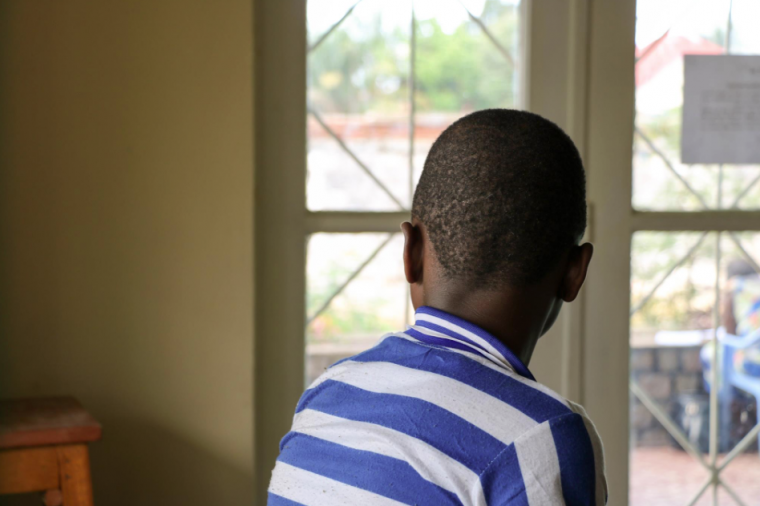Caught up in war: The future of children in Congo is bleak
Eleven-year-old Rebecca* still believes she was once able to talk to skeletons, turn sticks into guns and teleport herself across long distances.
Like many of the children in one of the militias in the Democratic Republic of Congo's Kasais provinces, she regularly took powder – probably some kind of drugs – as part of the militia's many ceremonies.
Life has never been easy for Rebecca. But before the conflict, she lived with her grandmother, went to school and had friends. However, her life changed when a conflict erupted in 2016. Fighting began, pitting various armed groups against each other due to a dispute over a local chieftaincy.

Village leaders and chiefs began to form militias across the provinces, and recruited thousands of children to fight for their cause – some as young as five years old. One day, one of Rebecca's classmates introduced her to leaders of a fighting group.
'When we came to join the movement the first day, the skeletons [militiamen] asked us, "What have you come here looking for?" and we told them "We're here to join the movement,"' Rebecca explains.
'Then the leaders appeared, and they gave us powder, then fufu [mashed cassava] with red ants, and then finally they gave us all a spoonful of red ants for everyone to eat. My mum knew that I was joining the militia, but didn't say anything. That was one of the rules – before joining, you needed to tell your parents,' she continues.
Rebecca's battalion included 10 girls and 10 boys. Children armed with sticks were led into battle by a five-year-old girl called Ya Mama who, according to Rebecca, was able to make soldiers fall asleep by singing.
Children typically join armed groups for a variety of reasons – a lack of education, pressure to defend the community, feelings that militias offer them better life opportunities, desperation for food and other necessities, or a lack of parental support.
For Rebecca, whose parents had both gone off to start new families and left her in the care of her grandmother, the militia system seems to have offered a sense of belonging. As she joined the movement last year, she suddenly gained respect, power, and a feeling of worth. Although she spent her time going into battle and participating in ceremonies, she still sees it as a positive experience. This is, in itself, a sign of deep psychological disturbance.
Rebecca left the group as part of a mass demobilisation campaign led by the United Nations and other actors in early June 2017.
'We were friends,' Rebecca explains. 'If the movement wasn't stopped, I wouldn't have quit. I would have stayed. I liked travelling to see the other villages.'
Rebecca is just one of many children who have been exposed to violence during the conflict in the Kasais. The UN children's agency, UNICEF, estimated that 60 per cent of the militia members in the Kasais were under the age of 18, with the majority younger than 15. World Vision recently interviewed 100 children there as part of our latest report on the impact the conflict is having on children.
Displaced, hungry and alone, all the children we interviewed have been affected by the war and still feel the effects of being forced to join armed groups, losing family members due to violence, or watching them die from starvation or disease. Many children worry about the violence restarting or being persecuted for their involvement in the militias.
The impact the conflict has had on children is catastrophic. Former child soldiers continue to suffer even after they leave armed groups, and their physical and mental health needs must be addressed urgently. But in places like Kananga, where Rebecca is from, social services are struggling to meet the psychological needs of former child soldiers and others who experienced violence during the conflict.
In addition to the physical injuries and emotional distress, former child soldiers often face stigma and cannot return to their communities. Alone, stigmatised and vulnerable, they are now in danger of being re-recruited. When we met Rebecca, she was one of the last children left at a demobilisation centre, still waiting for her family to accept her home.
Since the international community began responding to the crisis in Kasais, a very small percentage of children have received the psychosocial and protection support they need. World Vision has been working with teachers in schools and opening Child Friendly Spaces to provide support, but for children like Rebecca to process their experiences, additional investment in psychological care is urgently needed, and over a much longer time frame. It is only then that Rebecca – and other children scarred by the conflict –- will be able to recover and reach their full potential.
At World Vision, we believe that children are key stakeholders of peace, but unless governments, donors and child protection actors invest in long-term and sustained support, not only do we risk losing a generation of children, but we may also never be able to break cycles of violence that fuel the recruitment of children and conflicts like that one in the Kasais.
*Name changed to protect identity.
Kate Shaw works with Kasais Emergency Response and Erica Hall is technical policy lead at World Vision UK
World Vision is working to get children back in school and help them process their experiences in the Kasais through education and psychosocial projects that have reached almost 40,000 children. Overall, our multisectoral response has reached half a million people. The organisation's new campaign, It Takes a World, is working to end violence against children by improving birth registrations, getting children access to education, and improving social protections for children and their families.
For more information on World Vision's work in DRC, click here.











